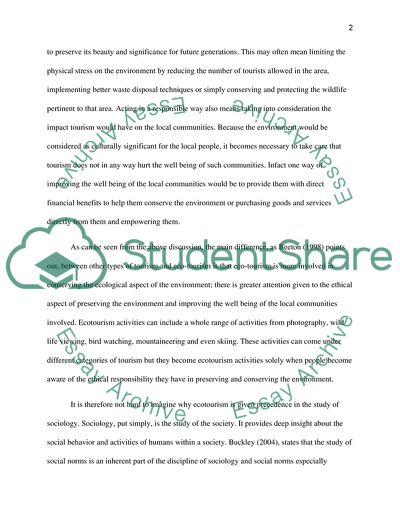Cite this document
(The Potential of Ecotourism in Developing Countries Coursework, n.d.)
The Potential of Ecotourism in Developing Countries Coursework. Retrieved from https://studentshare.org/tourism/1747833-title-not-given
The Potential of Ecotourism in Developing Countries Coursework. Retrieved from https://studentshare.org/tourism/1747833-title-not-given
(The Potential of Ecotourism in Developing Countries Coursework)
The Potential of Ecotourism in Developing Countries Coursework. https://studentshare.org/tourism/1747833-title-not-given.
The Potential of Ecotourism in Developing Countries Coursework. https://studentshare.org/tourism/1747833-title-not-given.
“The Potential of Ecotourism in Developing Countries Coursework”, n.d. https://studentshare.org/tourism/1747833-title-not-given.


